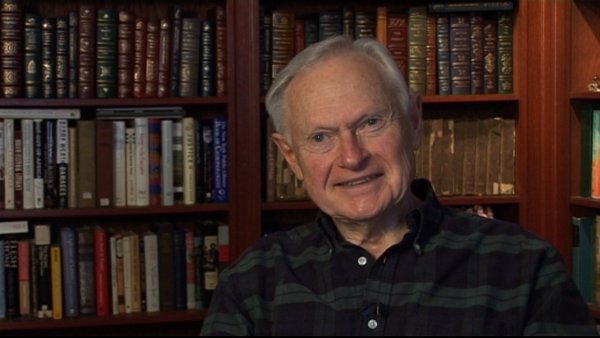NEXT STORY

The philosophy of surgery
RELATED STORIES

NEXT STORY

The philosophy of surgery
RELATED STORIES


|
Views | Duration | |
|---|---|---|---|
| 31. The first book - Doctors: The Biography of Medicine | 270 | 03:01 | |
| 32. My way to The New Yorker | 260 | 03:21 | |
| 33. An idea for a book worth writing | 270 | 03:55 | |
| 34. Working on How We Die | 290 | 02:42 | |
| 35. Who will publish How We Die? | 247 | 02:59 | |
| 36. The great success of How We Die | 283 | 05:19 | |
| 37. My method of writing | 286 | 04:04 | |
| 38. The concept of a changing brain | 261 | 02:38 | |
| 39. How our brains work | 297 | 03:33 | |
| 40. 'Hey boy, have you seen the eyes of that scrub nurse?' | 261 | 02:05 |


Well, here I am, this 23-year-old kid who finds himself, as a sub-intern, on the private surgical service at the Yale New Haven Hospital, under the care or control or direction of a very charismatic Colombian fellow who had been to medical school before, who then goes to the Yale Medical School, wins the big undergraduate research prize, and has an extraordinary pair of hands. That term, 'pair of hands', we use constantly in surgery. His name was Jose Patino. He went on to great things in his career, and we became great friends during my surgical residency. But in any event, so here he is: he's an artist, he loves to paint. He is a bon vivant, and he is a great, how shall we put this? Expert on ladies. He was unmarried at the time, and he was like some sort of musketeer of the 16th or early 17th century. He wasn't flamboyant. He was very quiet about everything, but to watch him operate was an exciting experience. It was the finesse of his hands, it was the quickness of his motions, it was the intense concentration at the same time that part of his brain could focus on what was going around the room. More than once, over the later years as we worked together during my training years, and eventually, when he became chief resident, he would not look up from the operating field, but with his eyes glistening, would quietly say in a very thick Spanish accent, 'Hey, boy, have you seen the eyes on the scrub nurse?'
Sherwin Nuland (1930-2014) was an American surgeon and author who taught bioethics, the history of medicine, and medicine at the Yale University School of Medicine. He wrote the book How We Die which made The New York Times bestseller list and won the National Book Award. He also wrote about his own painful coming of age as a son of immigrants in Lost in America: A Journey with My Father. He used to write for The New Yorker, The New York Times, Time, and the New York Review of Books.
Title: 'Hey boy, have you seen the eyes of that scrub nurse?'
Listeners: Christopher Sykes
Christopher Sykes is a London-based television producer and director who has made a number of documentary films for BBC TV, Channel 4 and PBS.
Tags: Yale-New Haven Hospital, José Patiño
Duration: 2 minutes, 5 seconds
Date story recorded: January 2011
Date story went live: 04 November 2011